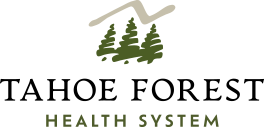Help is here.
Addiction is a treatable disease that can be managed with effective evidence based medications, counseling techniques, individual, and group support. The Tahoe Forest Health System (TFHS) Addiction Medicine team helps people in our community recover from addiction. Learn how medications can be used to treat substance use disorders, sustain recovery and prevent overdose.
About our program
Addiction involves complex interactions among brain circuits, genetics, the environment, and an individual’s life experiences.
Prevention efforts and coordinated treatment approaches for addiction are generally as successful as with other chronic diseases. Here at Tahoe Forest Health System, we are committed to removing barriers to care and reducing stigma to better serve our community.
The Addiction Medicine team at Tahoe Forest Health System (TFHS) specializes in the treatment of Substance Use Disorders (SUD) which includes opiates, kratom, amphetamines, cocaine, ketamine, benzodiazepines, and alcohol.
Our team approach provides individuals with the tools they need for long term recovery and success. This results in positive impacts on their quality of life and overall health. We understand that addiction treatment must be individualized to determine the most effective treatment plan.
Addressing Substance Use in Our Mountain Community
Sarah Redgrave, LCSW, a licensed clinical social worker with Tahoe Forest Behavioral Health, discusses the challenges of drug and alcohol abuse in mountain communities like Truckee and Tahoe. Factors like resort town culture and long winters contribute to this issue.
Medications
Several FDA-approved medications are approved to treat Alcohol Use Disorder (AUD) and Substance Use Disorders (SUD). These medications relieve the withdrawal symptoms and psychological cravings that cause chemical imbalances in the body.
Medications for Alcohol Use Disorder
- Acamprosate is for people in recovery, who are no longer drinking alcohol and want to avoid drinking. It works to prevent people from drinking alcohol, but it does not prevent withdrawal symptoms after people drink alcohol.
- Disulfiram is most effective in people who have already stopped drinking alcohol or are in the initial stage of abstinence.
- Naltrexone blocks the euphoric effects and feelings of intoxication. It allows individuals to reduce alcohol use and to remain motivated to continue to take the medication, stay in treatment, and avoid relapses. Vivitrol is a long-acting injectable form of Naltrexone that many patients prefer, and may be an option.
- Additional Medications prescribed for more severe withdrawal include Phenobarbital, Librium, Gabapentin, Baclofen and Depakote. Our clinicians will work with you to choose the safest and most effective medication(s) for you.
Medications for Substance Use Disorder
Buprenorphine (Subutex) and buprenorphine with naltrexone (Suboxone) are used to treat opioid use disorders (OUD) to short-acting opioids such as heroin, morphine, and codeine, as well as longer acting opioids like fentanyl, oxycodone and hydrocodone.
- Buprenorphine suppresses and reduces cravings for opioids. There are also long-acting injectable forms of Buprenorphine called Sublocade and Brixadi and may be an option.
- Naltrexone and long-acting injectable Naltrexone (Vivitrol) blocks the euphoric and sedative effects of opioids preventing feelings of euphoria and overdose.
Opioid overdose prevention medication
Naloxone (NARCAN) is used to prevent opioid overdose by reversing the toxic effects of the overdose.
Free NARCAN® is available at:
Emergency Departments
Tahoe Forest Hospital, 10121 Pine Avenue, Truckee
Incline Village Community Hospital, 880 Alder Avenue, Incline Village
Addiction Medicine Clinic
Levon Building, 10978 Donner Pass Road, #8, Truckee
HAVEN Vending Machine
Joseph Center, 10075 Levon Avenue, Truckee
Counseling and support
Tahoe Forest Health System offers both individual and group therapy for substance use and alcohol use disorders in Truckee and Incline Village.
Therapy is an important part of the treatment plan. Through counseling, people learn why the addiction occurred, the problems it has caused, and what they need to change to overcome those problems. Therapy can provide encouragement and motivation, teach coping skills and prevent relapse. Additionally, it can help people learn how to make healthy decisions, handle setbacks and stress, and move forward with their lives.
Group therapy/support groups for Substance Use and Alcohol Use Disorders
We offer support groups at the Tahoe Forest Hospital, led by Nico Mills, PsyD, Allie Fitzsimmons, Substance Use Navigator (SUN), and Sarah Redgrave, LCSW.
Meet Our Team
- Jacob Marquette, DO, Board certified in Addiction and Family Medicine, Collaborating Physician
- Leila Jirari, PA-C, MPH, Addiction Medicine Medical Director
- Nico Mills, PsyD, Clinical Psychologist
- Emma Dennie, Substance Use Navigator (SUN)
- Allie Fitzsimmons, Substance Use Navigator (SUN)
- Idali Lomeli, MA, Addiction Medicine Medical Assistant
- Holly Rentfro, Addiction Medicine Manager

Contact Us
Direct referrals to the Addiction Medicine Clinic can be made by calling (530) 582-1212.
Financial assistance may be available through various grant programs. Most of the costs are covered by grants.*
*subject to change















